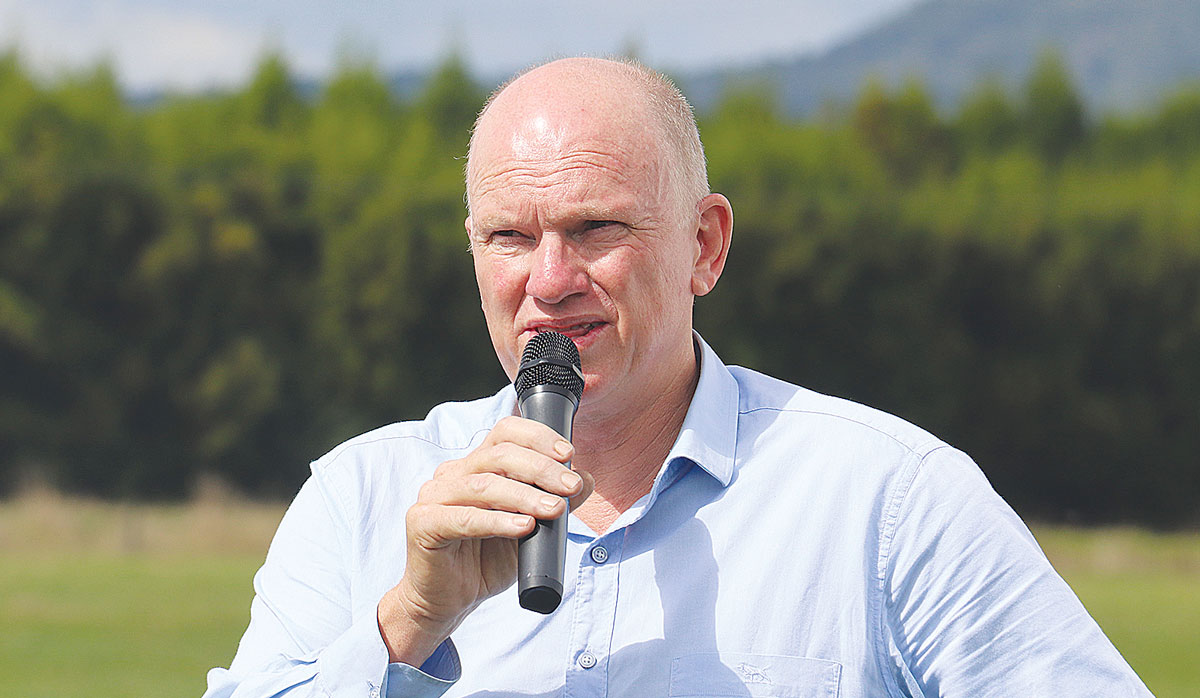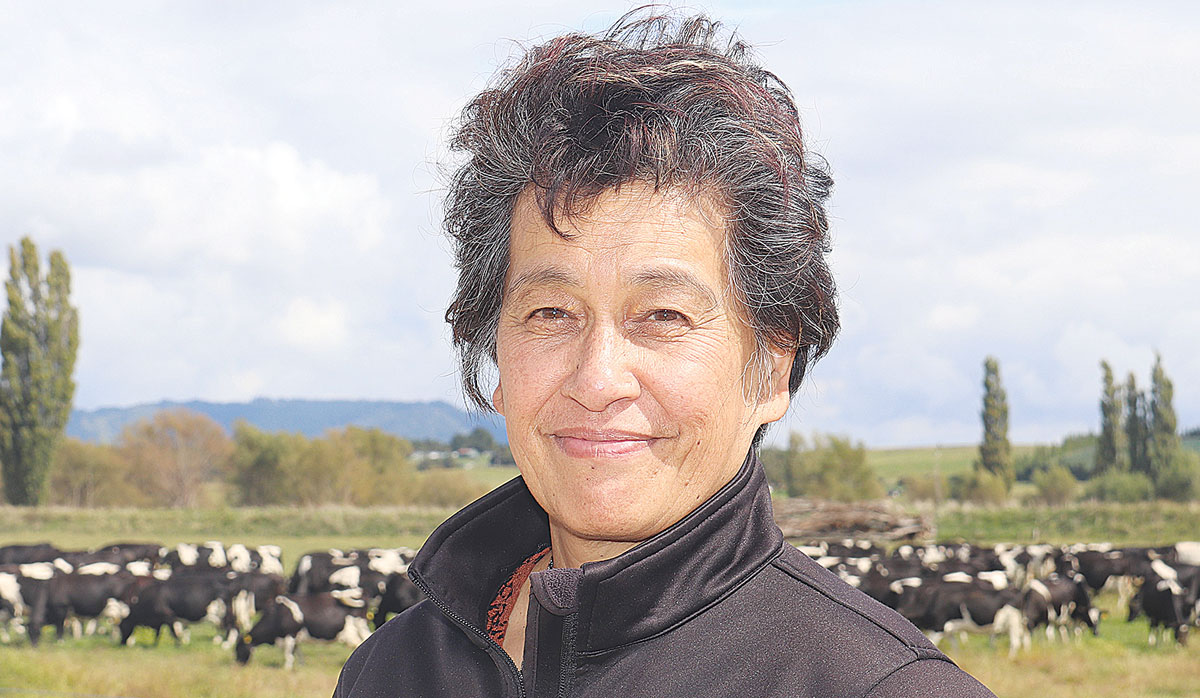Three vying for prestigious title
Competitors from Oamaru, Ashburton and Tirau are all vying for this year’s prestigious Young Māori dairy farmer of the year title.
In a few weeks the winner of the prestigious Ahuwhenua Trophy for the top Māori dairy farm will be revealed at a gala dinner in Hamilton. In the past couple of weeks, the two finalists in this year’s competition have been holding on-farm field days to showcase why they are finalists. Peter Burke has attended both field days.
Both events have been well attended with more than 300 people coming to WMI and about 250 to Whakatohea.
The finalists are Wairarapa Moana Incorporation (WMI), based at Mangakino in the Central North Island, and the Whakatohea Māori Trust Board based near Opotiki.
At the farms visitors were clearly impressed with what they saw. In both cases the Ahuwhenua Trophy was carried onto the venue for the powhiri and later there were presentations by trustees and staff. In the case of WMI the welcome and presentations were held in a marquee because there was no WMI marae. But with Whakatohea, the welcome and presentations were held at the Terere Marae.
The initial presentations covered off the history, strategy and key financial data of both finalists, and then guests had the opportunity to go to selected sites on the farms to hear more details about the respective properties from farm staff and their advisors. There was also an opportunity for visitors to ask questions and see the stock and get a better understanding of the nature and philosophy of the farms.
The two are quite different: The farm entered by WMI, Farm 4, has a milking platform of 300 hectares, milking 980 cows and producing 416,000 kgMS. But it is one of 12 dairy units owned by WMI across a 4300ha platform, plus three dairy support units comprising 1900ha.
WMI aims to produce five million milksolids from its 12,000 cow herd and is the largest supplier to milk processor Miraka, of which it is a cornerstone shareholder.
By contrast Whakatōhea Māori Trust Board’s dairy farm, Te Riu o Kānapanapa, is a collective of five dairy farms located 4km south of Ōpōtiki. The dairy platform is 218ha effective, made up of 175.7ha of corpus whenua, plus an additional 29ha of freehold land and a 13.3ha lease block. The farm winters 748 cows and milks 690 to peak with a production target of 300,000 kgMS. They also rear stock on a 346ha support block near Matawai in the Gisborne catchment.
Mark Johnson is Whakatohea’s farm advisor and he and farm manager Josh Collier were centre stage during the actual presentations out on the farm. According to Mark, times have been tough for Whakatohea over the past few years with almost incessant rain, which ponded in paddocks, damaging pasture and making it hard for staff and stock.
“In the end the cows gave up – they just didn’t want to eat the grass because it was so full of water and lacked nutrition. The cows were miserable and the people were miserable,” he says.
Unfortunately, the problems of last season’s wet weather spilled over to the current production year, causing an outbreak of staph aureus, which created mastitis. On top of that, there was a salmonella outbreak and some of the calves ended up with rotavirus. There were also problems with supplements which were down by about half.
The end result was a 6% drop in production to around 259,000 kgMS – well down from the normal target of 300,000 kgMS.
But Johnson says things are picking up and, like most farms in the district, grass growth is phenomenal. So also are yields from maize, hitting close to 25 tonnes per hectare over the 19ha planted.
“The critical thing now is managing the grass and to that end our stocking rate of 3.5 per ha is high by some standards, but not ours as we need the additional animals to manage the grass growth in summer,” he says.
 |
|---|
|
Mark Johnson, Whakatohea’s farm advisor, speaking at the field day. |
Johnson is positive about the farm, saying they have invested heavily in new infrastructure such as a new cow shed, new silage bunkers and a state-of-the-art effluent system.
Fantastic Turnout
The field days at both Wairarapa Moana Incorporation and Whakatohea Māori Trust Board, along with the judging process, provided both entities with a great independent insight into their respective farms.
The CEO of Whakatōhea, Dickie Farrar, says their field day was fantastic with people coming from afar to learn about the farm and the history of Whakatōhea. She says she found it inspirational seeing all the hard work of her staff coming together. It helped to understand the tremendous effort that goes into the running of the competition, including the judging process.
Meanwhile the chair of Wairarapa Moana Incorporation, Kingi Smiler, described the recent field day at their Number 4 dairy as a fabulous day with a fantastic turnout. He says it was a major undertaking to organise the field day and says they had a big team of staff helping behind the scenes for the last two months.
Finally, Nukuhia Hadfield, the chair of the Ahuwhenua Trophy Management Committee, praised the efforts of both finalists for organising their respective field days. She says both are worthy contenders and she is looking forward to the announcement of the winner at the awards dinner, being held in Hamilton on 17th May 2024.
 |
|---|
|
Whakatohea Maori Trust chief executive Dickie Farrar. |
Farm Level Contact
At WMI, chairman Kingi Smiler says he’s personally very active in overseeing the operation, right down to the last detail on the farm, with the staff.
He sees his job as getting to know and understand what needs to happen at a farm level. Smiler says WMI have a comprehensive database and staff report to the governing body on what is happening, giving them confidence that the strategy is being implemented.
“We of course have good staff whose attention to detail is excellent and they have been able to execute this every day of the week and get it right most of the time across all our farms, which is not easy,” he says.
One of the farm advisors at WMI is Dr Gavin Sheath, who’s had a stellar career at AgResearch as a farm systems scientist, says a key to the success of the number 4 Farm is the good systems that are in place and the support for these at a management level.
“So people know exactly what’s wanted from them,” he says.
Sheath says his role has been to reposition Farm 4 into a highly efficient property which has a low impact on the environment. For example, they worked out that winter cropping was using too much nitrogen, so they eliminated winter cropping and ended up halving their use of nitrogen.
“We have put in a pretty precise effluent management system and we did drop stocking rates just a little bit.
“Our aim is to reduce the amount of nitrogen leaking from the farm, but at the same time making certain that we are highly productive and profitable,” he says.
Animal rights organization, SAFE says the government needs to maintain the ban on live exports.
New findings from not-for-profit food supply and distribution organization, the New Zealand Food Network (NZFN) have revealed a 42% increase in demand for food support in 2023 compared to 2022.
New data released by LIC and DairyNZ shows New Zealand dairy farmers have achieved the highest six week in-calf rate and lowest notin- calf rate on record.
Christchurch City Council and the Canterbury Agricultural and Pastoral Association (CAPA) have signed an agreement which will open more of Canterbury Agricultural Park for public use while helping to provide long-term certainty for the A&P Show.
This year’s Fieldays will feature a Rural Advocacy Hub - bringing together various rural organisations who are advocating for farmers and championing their interests as one team, under one roof, for the first time.
ASB head of rural banking Aidan Gent is encouraging farmers to speak to their banks when they are struggling.
OPINION: Talking about plant-based food: “Chicken-free chicken” start-up Sunfed has had its valuation slashed to zero by major investor Blackbird…
OPINION: Synlait's financial woes won’t be going away anytime soon.